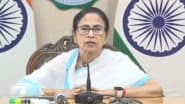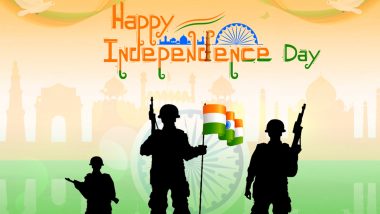Every year, India celebrates its Independence Day on August 15 with great enthusiasm and patriotic fervour throughout the country. On this day, people across the country pay respect to all the leaders who fought bravely for our nation's freedom. On Independence Day 2023, the Prime Minister of India hoists the tricolour flag at the Red Fort in Delhi and delivers an I-Day speech to the nation. Independence Day on August 15 is a national holiday which means every government offices, post offices and banks will remain shut. Independence Day of India commemorates the nation's independence from the United Kingdom on 15 August 1947. It was the day when the provisions of the Indian Independence Act, which transferred legislative sovereignty to the Indian Constituent Assembly, came into effect. Scroll down to learn more about the Independence Day of India 2023 date, history and significance. Independence Day 2023: Another Campaign ‘Meri Mati Mera Desh’ To Be Launched To Honour Our Fallen Bravehearts, Says PM Modi.
Indian Independence Day History
For long, India was under the British Raj, with the East India Company ruling the country for about 100 years. India's freedom struggle is historic as it was the most non-violent campaign in the world. During the 1940s, India faced political turmoil with its participation in World War II, the Congress's final push for non-cooperation, and an upsurge of Muslim nationalism led by the All-India Muslim League. In 1757, the East India Company won the battle of Plassey and thereafter exerted power over India.
The struggle for independence was a long and arduous one, with several movements, protests, and sacrifices by freedom fighters across the country. Mahatma Gandhi, the father of the nation and the leader of the non-violent civil disobedience movement, played a crucial role in India's struggle for freedom.
The Indian Independence Act 1947 (10 & 11 Geo 6 c. 30) of the Parliament of the United Kingdom partitioned British India into the two new independent dominions of India and Pakistan, including Bangladesh, with effect from August 15, 1947. The Act granted complete legislative authority to the respective constituent assemblies of the new countries. On 15 August 1947, the first Prime Minister of India, Jawaharlal Nehru, raised the Indian national flag above the Lahori Gate of the Red Fort in Delhi. On each subsequent Independence Day, the incumbent Prime Minister customarily raises the flag and gives an address to the nation.
Indian Independence Day Significance
Independence Day is observed throughout India on August 15 with flag-hoisting ceremonies, parades and cultural events. The national holiday is marked with great enthusiasm across the country. The day is a perfect opportunity for people to express their love and respect for their country. Schools and colleges conduct flag-hoisting ceremonies and various cultural events to remember the sacrifices of the freedom fighters and their struggle for independence. I-Day celebrations are also held worldwide by the Indian diaspora, particularly in regions with higher concentrations of Indian immigrants.
(The above story first appeared on LatestLY on Aug 01, 2023 09:00 PM IST. For more news and updates on politics, world, sports, entertainment and lifestyle, log on to our website latestly.com).













 Quickly
Quickly


